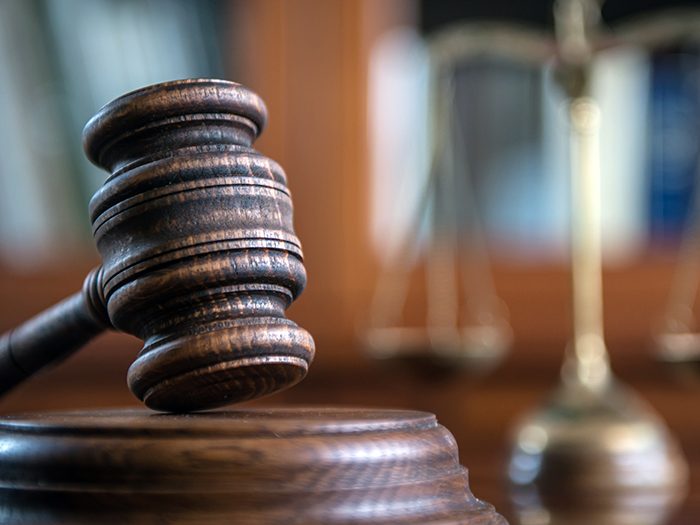Legal Roundup: Google’s Sexual Misconduct Lawsuit, Amazon’s Liability in Death of Teen and More

Google Parent Company to Settle Sexual Misconduct Lawsuits for $310 Million
The case: Google faced numerous lawsuits from shareholders claiming that its “brogrammer” culture led to sexual harassment against women employees. They claim the tech giant breached fiduciary responsibilities when it covered up sexual harassment claims by high-powered male executives and offered them generous packages when they were laid off.
Scorecard: Alphabet, Google’s parent company, agreed to pay $310 million to create a diversity, equity, and inclusion advisory council.
Fortune reports that the settlement also “ends Alphabet’s mandatory arbitration for harassment, discrimination, and retaliation-related disputes between employees or contractors and the company. It limits Google’s use of nondisclosure agreements and ensures that the recommended consequences for misconduct are equal across business units.”
Takeaway: The male-dominated tech industry is in need of a culture shift — and seeing changes from a major player like Google could get other companies to follow suit.
Construction Worker: I Was Fired After Boss Punched Me Over Safety Complaint
The case: Construction worker Justin Driskell claims he was assaulted by his boss at Summit Contracting Group — one of Charlotte’s largest developers. The Charlotte Observer reports: “Driskell said his superintendent was drunk on the job and made his work setting unsafe. Yet Summit fired him, Driskell said, after his superintendent beat him up in a hotel parking lot, causing him to be hospitalized.” Driskell subsequently sued.
Scorecard: The 4th Circuit Court of Appeals in Richmond, Va., upheld a 2018 verdict, awarding Driskell $750,000 in punitive damages, lost wages, and medical bills. Summit Contracting Group previously said its worksites are safe, positive atmospheres.
Takeaway: Employees who bring safety complaints must be protected from termination and other retaliatory behavior.
Amazon Not Liable For Death of 18-Year-Old Wrestler
The case: Logan Stiner, 18, died after ingesting powdered caffeine a friend bought on Amazon. His family subsequently sued the retail giant, claiming it should know if unsafe products are on its platform.
ABC News reports: “Stiner died of cardiac arrhythmia and seizure from acute caffeine toxicity, a coroner ruled. He had more than 70 micrograms of caffeine per milliliter of blood in his system — as much as 23 times the amount found in the system of a typical coffee or soda drinker. What was undisputed is that Stiner ingested powdered caffeine given to him by a friend who bought it on Amazon and was using it as a ‘pre-workout’ boost.”
Scorecard: The Supreme Court of Ohio ruled that Amazon can’t be held liable for problems with products sold by third-party sellers using its platform.
“Because Amazon does not have a relationship with the manufacturers of third-party products, Amazon lacks control over product safety. Amazon did not choose to offer the caffeine powder for sale and has no role in manufacturing, labeling or packaging the product,” said Justice Judi French, according to ABC News.
Takeaway: By providing a marketplace for third-party sellers, Amazon appears safe from liability for unsafe products sold on its site.
Oregon Power Company Sued Over Wildfires
The case: Pacific Power has been sued for negligence over its alleged role in the recent Oregon wildfires.
The Oregonian reports that the suit “claims that despite being warned of extremely critical fire conditions and a historic high-wind event, PacifiCorp left its power lines around the state energized. As the forecasted winds came on in full force, they toppled power lines, igniting trees, brush and grass. The lead plaintiffs are a couple who lost their home in the wildfire.”
The company did not comment because the litigation was pending.
Scorecard: The case has just recently been filed and has not yet come to a resolution.
Takeaway: The potential liability for Pacific Power could be huge. In 2018,n Pacific Gas & Electric went bankrupt after its transmission lines sparked a California fire.
The Oregonian reports: “That fire devastated the town of Paradise, destroying 11,000 homes and claiming 85 lives. PG&E’s equipment has been found to have set dozens of fires in recent years, and it was facing $30 billion in claims before filing for bankruptcy protection. It agreed in May to pay $13.5 billion in cash and stock to settle those claims.” &










